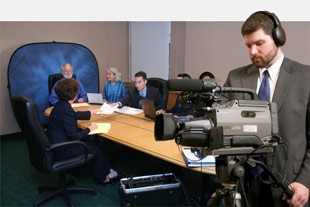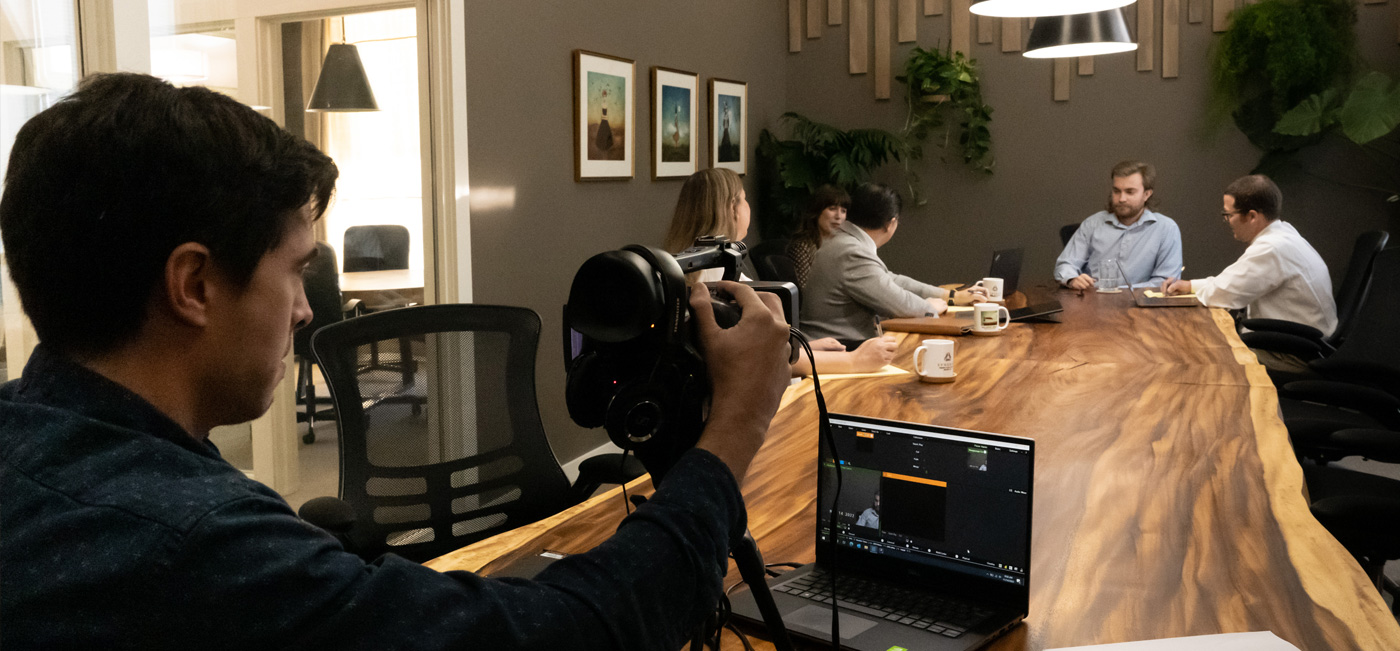Legal Videography: Transforming the Method Proof is Caught and Offered
Legal Videography: Transforming the Method Proof is Caught and Offered
Blog Article
The Intricacies of Legal Videography and Its Function in Capturing Crucial Information for Evidential Purposes in the Legal Field
In the world of the lawful field, the application of videography has come to be an essential device for capturing the details and nuances that can make or damage an instance. From documenting crime scenes to recording witness statements, lawful videography plays a pivotal function in offering essential details with unparalleled clearness and precision. Past the surface area degree of simply tape-recording occasions, there exists a maze of complexities and considerations that must be navigated to ensure the admissibility and authenticity of video evidence. Comprehending the technical elements, lawful needs, and critical effects of lawful videography is vital for lawyers looking for to use its complete possibility in strengthening their instances.
Advancement of Legal Videography
Just how has lawful videography evolved within the lawful area throughout the years? Legal videography has actually gone through a substantial transformation, adjusting to the technical developments and changing needs within the legal profession. Legal videography was mainly utilized for easy recordings of legal procedures and depositions. Nevertheless, with the advent of high-definition cameras, advanced modifying software, and on the internet platforms, the function of lawful videographers has broadened to encompass a wider series of services.

Furthermore, the rise of online proceedings and remote depositions in current years has further drove the evolution of legal videography, requiring videographers to adjust their skills to catch process efficiently in an electronic environment (Legal Videography). Generally, the evolution of lawful videography has actually been marked by a shift in the direction of more advanced modern technology, enhanced professionalism and trust, and a broader scope of services to fulfill the evolving needs of the legal area
Importance of High-Quality Video Footage
High-grade footage in legal videography is vital for properly recording and presenting aesthetic proof in a specialist and trustworthy manner. The clarity and detail caught in high-grade footage can be essential in legal procedures, permitting an exact assessment of occasions, expressions, and information that might be crucial to an instance. Juries, courts, and lawful professionals rely upon aesthetic proof to recognize complex scenarios, and poor-quality video footage can bring about misconceptions or uncertainties concerning the credibility of the proof presented.
Moreover, premium video footage can improve the overall discussion of evidence, making it more compelling and influential. Well-captured visuals can aid enhance disagreements, clear up statements, and offer an extensive view of the truths available. This can inevitably enhance the credibility of the lawful group providing the evidence and raise the probability of a positive outcome for their customers. In an area where every detail matters, buying top notch video footage is not just valuable however typically required to guarantee that justice is served precisely and fairly.
Methods for Effective Documentation
To make sure extensive and accurate documents in legal videography, employing efficient techniques is extremely important in catching important details and proof. Maintaining a thorough log of all footage, consisting of timestamps and descriptions of the material, is critical for very easy reference and retrieval throughout lawful process. By implementing these techniques, lawful videographers can improve the quality and dependability of their documentation, eventually reinforcing the evidential worth of their recordings.
Admissibility and Authentication of Video Evidence
In the world of lawful videography where meticulous paperwork is important, the admissibility and authentication of video clip evidence play an essential function in identifying the reliability and credibility of recorded materials. Admissibility refers to the approval of video evidence in a law court, while authentication ensures that the video offered is unchanged and authentic. For video clip proof to be acceptable, it needs our website to please lawful needs such as integrity, relevance, and credibility. The chain of custodianship, which documents the handling of the video from videotaping to presentation in court, is vital for establishing authenticity.
Authentication involves confirming that the video has actually not been tampered with or modified to misstate realities. Strategies such as electronic signatures, metadata evaluation, timestamps, and expert testament can be made use of to confirm video clip evidence. Additionally, making sure that the video was recorded under correct problems which the devices made use of was operating appropriately reinforces its credibility. Eventually, the admissibility and authentication of video clip evidence are visit this site right here crucial in promoting the integrity of lawful process and making certain that justice is offered based on reliable info.
Enhancing Legal Methods With Video Innovation

These reconstructions can assist clarify complex details, timelines, and spatial connections, assisting in the understanding of complicated lawful issues. Overall, the combination of video innovation into legal methods not only enhances the discussion of evidence but also enhances the persuasiveness and integrity of lawful debates.
Conclusion
In verdict, lawful videography plays a vital duty in capturing necessary details for telltale functions in the lawful area. Through like it the evolution of technology and strategies for effective paperwork, high-grade footage can improve lawful methods and offer valuable proof in court. Legal Videography. Ensuring the admissibility and authentication of video evidence is crucial to using video clip technology efficiently in lawful procedures
Understanding the technical aspects, lawful needs, and critical effects of lawful videography is crucial for legal professionals seeking to use its full possibility in strengthening their instances.
Legal videography was mainly used for straightforward recordings of lawful proceedings and depositions.Utilizing video modern technology in lawful techniques can substantially reinforce the effectiveness of legal professionals in offering proof and arguments in a engaging and convincing way. In general, the assimilation of video clip technology right into legal techniques not just improves the presentation of proof but additionally enhances the persuasiveness and trustworthiness of legal arguments.
In verdict, lawful videography plays an essential duty in catching essential information for indicative functions in the legal area.
Report this page